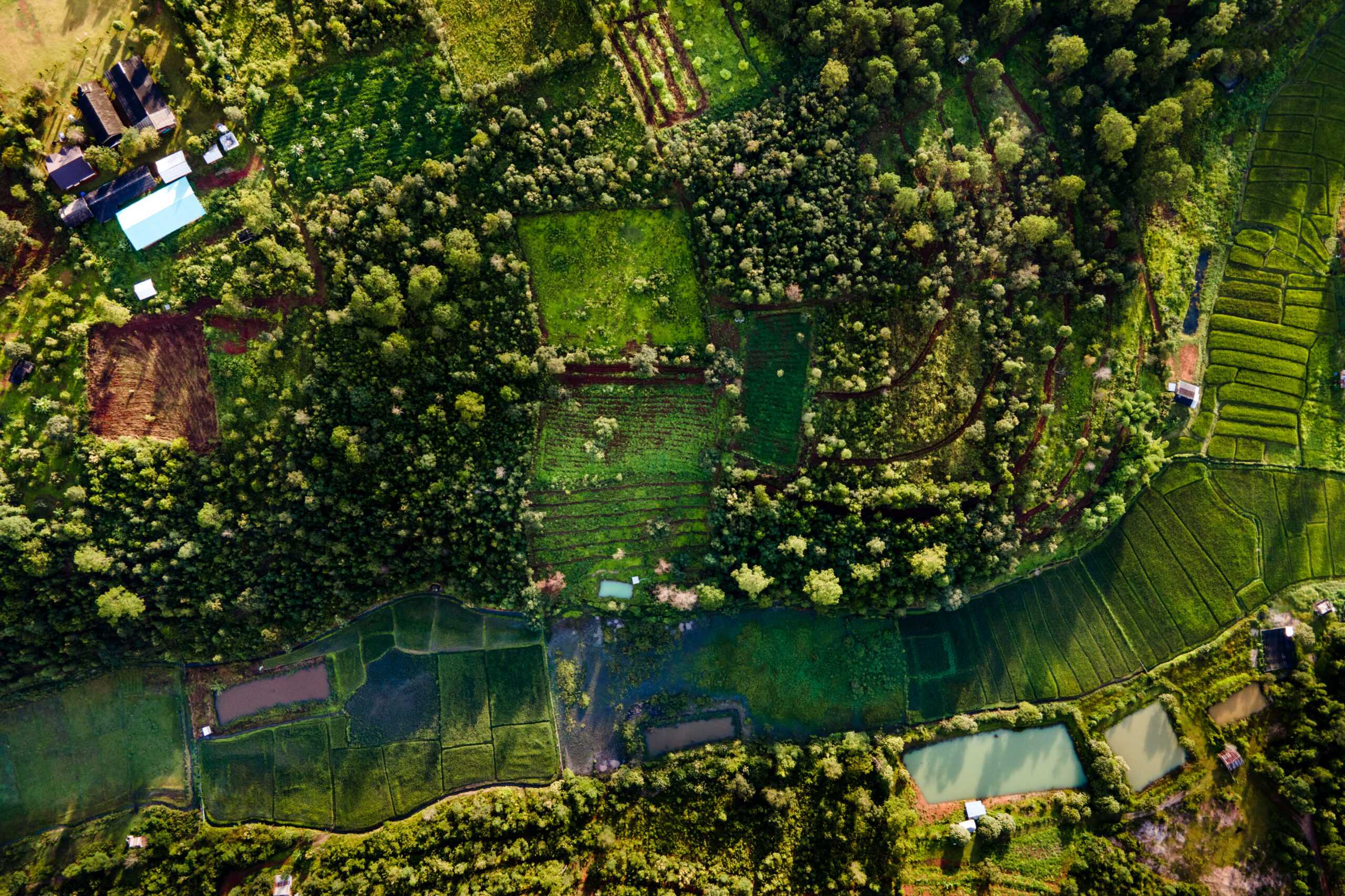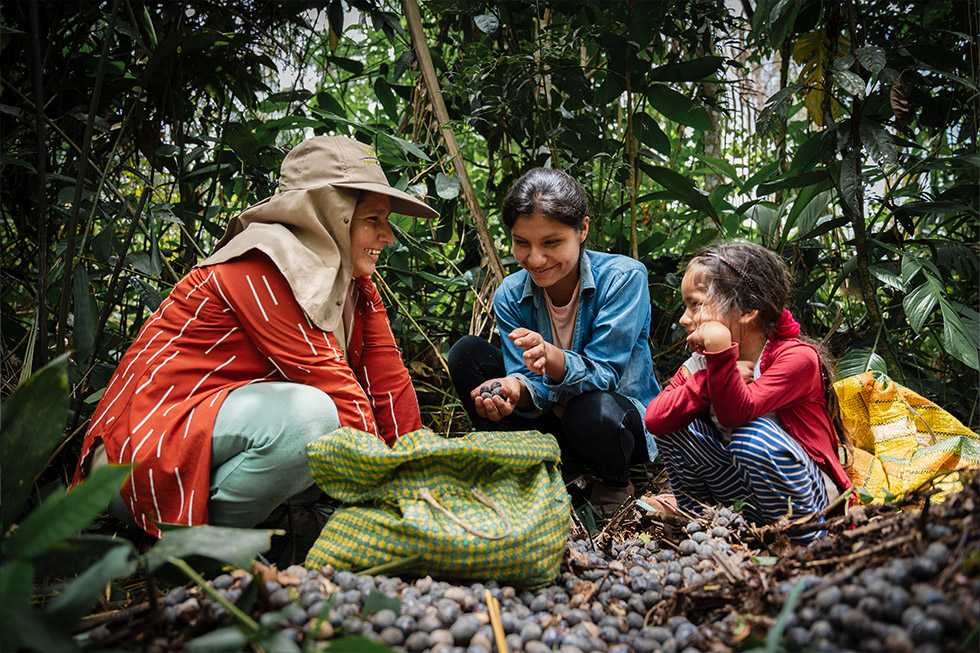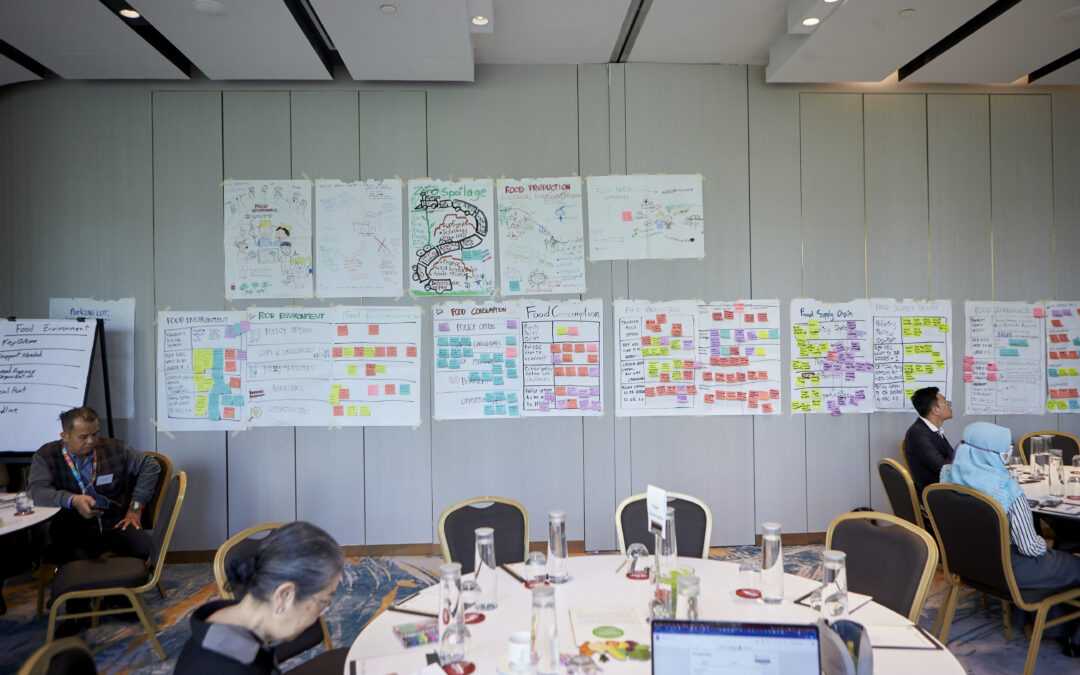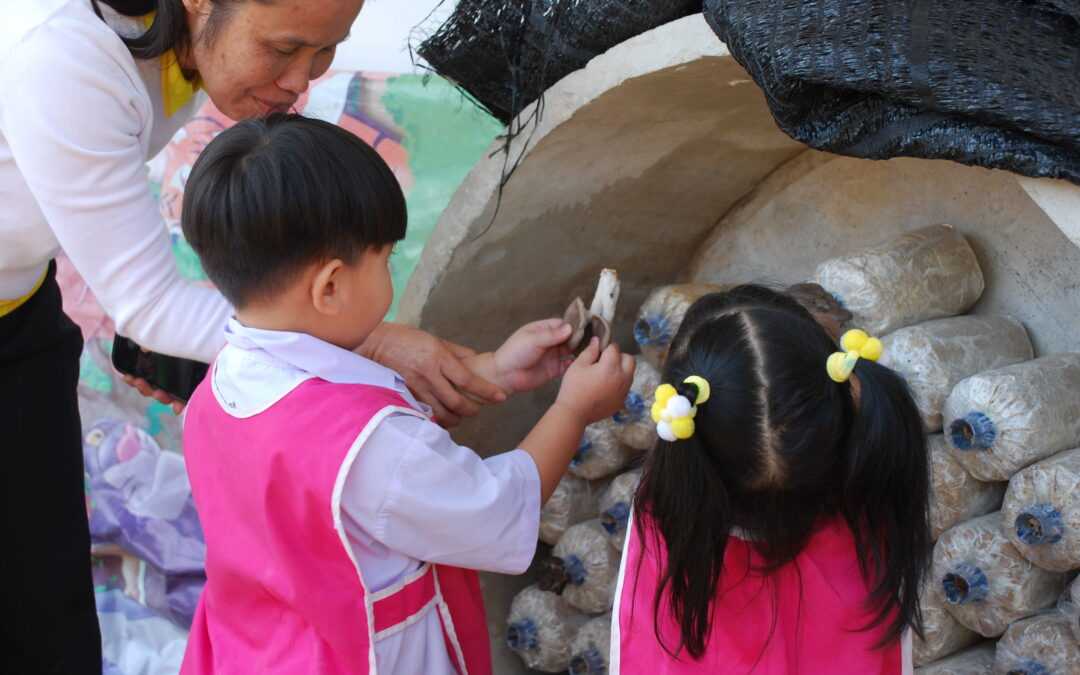For governments
Future Food Together is contributing to the adoption of new government strategies. We are working with governments to integrate our findings and lessons into municipal strategies and regulations and into national action plans connected to the implementation of the Sustainable Development Goals (SDGs).
In order to achieve GHG emission reductions and sustainable development in the agri-food sector, the project focuses on strengthening the inclusion and adoption of SCP principles into climate policies.
In Cambodia, Future Food Together has been actively collaborating with various stakeholders, including the Provincial Department of Agriculture Forestry and Fishery, the agricultural and food system working group, and other networks. These engagements aimed to enhance awareness and adoption of good agricultural practices across the agricultural sector in Cambodia.
In Thailand, we address unsustainable consumption and production through implementing the FLR349 model in collaboration with partners such as the Royal Forest Department, focused on promoting agroforestry practices based on research findings.
In Indonesia, Colombia and Paraguay, we have supported the relevant ministries and agencies with reviewing and updating their Nationally Determined Contributions (NDCs) to advocate for a stronger weighting of the agri-food sector.

© WWF Thailand
Project News

Want food systems that benefit people, planet and prosperity? Root them in equity
Our global food systems are ailing. They are not only unsustainable but also inefficient and unjust. A new WWF study shows that inequality lies at the root of today’s food crisis, and that this is not accidental: it is the result of historical processes and political choices – and so, it can be changed

Integrating Food Systems into Climate Action: Lessons from Cambodia and Thailand
Both Cambodia and Thailand have recognized the importance of addressing climate change, but the integration of food systems into their NDCs remains a work in progress. Policymakers in both countries have the power to drive transformative change, but they need the right tools and knowledge to do so.

Thai School Lunch Initiative
How can we weave healthy and sustainable diets into everyday school life and get the young ones excited about good, nutritious food?
